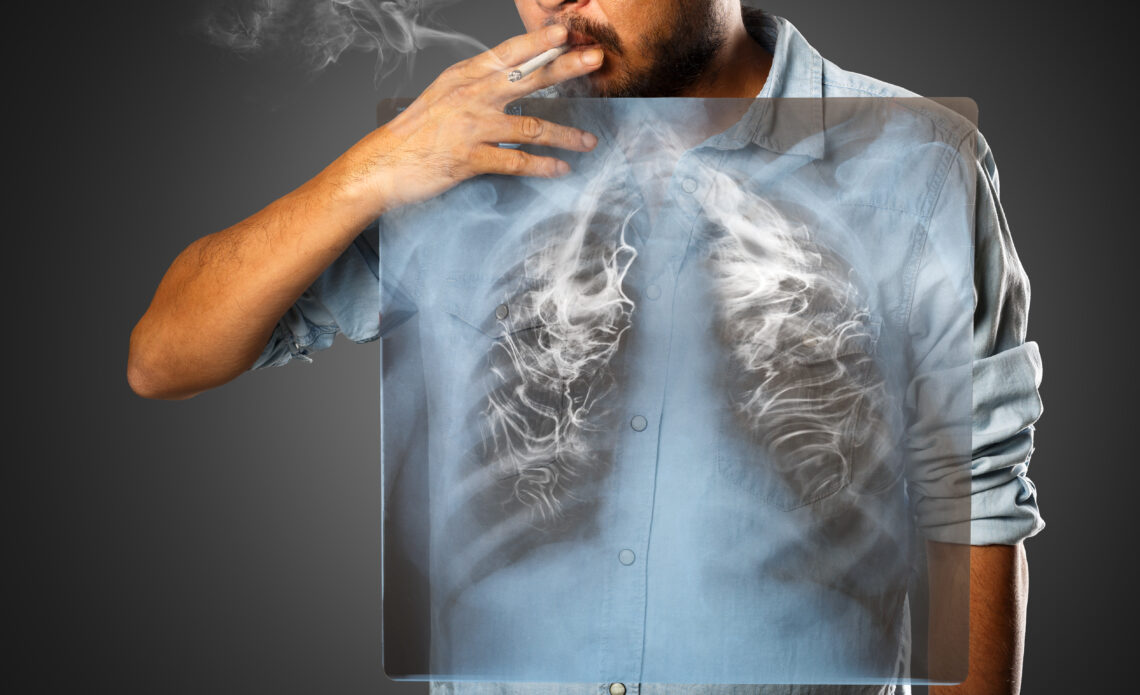
Smoking is the leading cause of preventable disease in the United States—yet, this behavior is practiced by nearly 40 million adults. Smoking and tobacco use increases your risk for a wide range of serious health problems, including death. However, knowing what smoking does to your lungs can empower you to quit.
Here are three things you should know about the effects of smoking on your lungs.
Every puff of cigarette smoke you inhale contains more than 7,000 chemicals. These toxic chemicals will travel through your bloodstream to harm nearly every organ in your body and cause body-wide inflammation that contributes to chronic disease.
Here are three other important things to know about the effects of smoking on the lungs:
Many of your organs can repair themselves after a short- or long-term illness or injury. For instance, the liver can sometimes fully regenerate over time after someone who drinks high amounts of alcohol has quit drinking. Unfortunately, lung tissue cannot grow back or regenerate after it has become damaged.
Smoking permanently destroys alveoli, which are the tiny air sacs in your lungs that are responsible for moving oxygen into your bloodstream and carbon dioxide out of your bloodstream. Over time, the longer you smoke, this permanent damage to your lungs can make it more difficult for you to breathe and fully relax your lungs. Your major organs will also be deprived of oxygen—increasing the risk for other health problems, including organ damage.
Chronic obstructive pulmonary disease (COPD) refers to a group of lung diseases in which airflow is blocked to cause difficulty breathing. COPD is usually caused by smoking, which is responsible for an estimated eight in 10 COPD-related deaths. Additionally, 38% of adults in the United States who are diagnosed with COPD say that they are current smokers.
When not treated, COPD can lead to complications including heart disease, depression, and lung cancer. The most effective way to prevent COPD is to quit smoking.
Lung cancer is the number one cause of cancer deaths in both men and women. The vast majority of lung cancer deaths are caused by smoking, and people who smoke are 20 times more likely to develop lung cancer than people who don’t smoke.
Smoking is also linked to a number of other cancers, including cancers of the colon, kidney, liver, and stomach. It is estimated that if everyone stopped smoking tobacco products, one in every three cancer deaths in the United States could be avoided.
Fortunately, your risk for lung cancer decreases by 50% after you have quit smoking for at least 10 years. Nicotine is a habit-forming substance that can make it difficult for you to quit. However, many effective smoking cessation treatments can help you stop for good.
Nicotine replacement, medications, and behavioral therapies are the most common smoking cessation treatments.
Patches, gums, lozenges, and sprays are nicotine replacement products that can be purchased over the counter without a prescription at most pharmacies. These treatments are shown to increase smoking quit rates by 50% to 70%.
Medications like bupropion and varenicline interact with certain brain chemicals to reduce your desire to smoke, while behavioral therapy can help you change harmful behaviors related to smoking and discover healthier ways to cope with stress, such as mindfulness meditation.
Your provider can work with you to find a smoking cessation treatment that works best for you and talk to you in greater detail about what happens to your lungs when you smoke if you’re still on the fence about quitting.
Thoracic Group specializes in the diagnosis and surgical treatment of conditions that affect the lungs, including lung cancer. Request an appointment with us today to learn more!